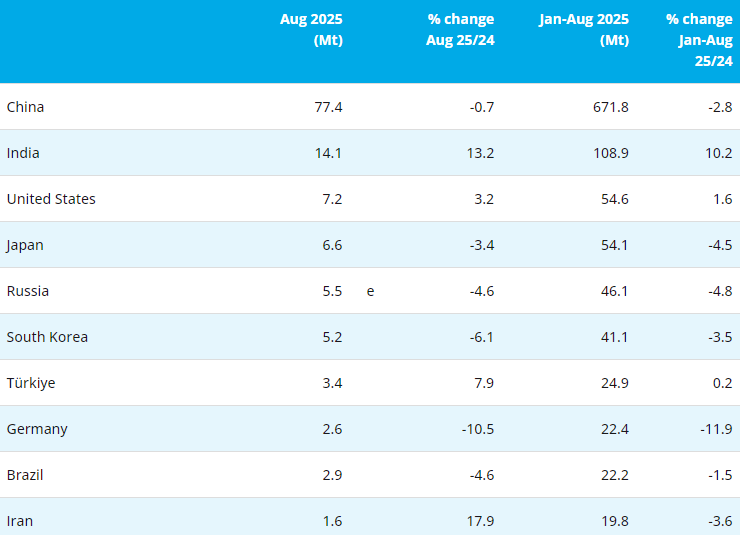The nation's top two steelmakers POSCO and Hyundai Steel are facing an unprecedented crisis as they have received orders from municipal administrations to shut down their blast furnaces, industry officials said Tuesday.
Local governments of the regions, in which the two companies operate steel mills, have been conducting their respective investigations since April into allegations that the firms were emitting air pollutants illegally.
Following the investigation, the South Jeolla Provincial Government on April 24 notified POSCO's steel mill in Gwangyang of a 10-day blast furnace shutdown, while the South Chungcheong Provincial Government notified Hyundai Steel's steel mill in Dangjin, May 16.
The North Gyeongsang Provincial Government gave the notice to POSCO's steel mill in Pohang, May 27.
After the steelmakers received the notification, they submitted statements of their views to the local governments and asked to hold hearings.
But the South Chungcheong Provincial Government confirmed its punitive measure against Hyundai Steel's steel mill in Dangjin, May 30.
POSCO's steel mill in Gwangyang is scheduled to undergo hearings on June 18.
The measures come amid allegations that steelmakers have emitted air pollutants through bleeders of blast furnaces without anti-pollution equipment.
Officials at steelmakers claimed the latest administrative measures, if all of them are finalized, will deal a serious blow to the industry as they will not be able to operate steel mills properly without blast furnaces.
Blast furnaces are supposed to operate without a break to prevent molten metal from hardening.
"If we shut down blast furnaces for more than four to five days, molten metal will totally harden, and it would take more than three months to be able to operate the blast furnaces again," said a steel company official, who declined to be named.
Officials said the administrative measures were considered not understandable as it is inevitable for steelmakers to open valves of bleeders every other month due to safety considerations when carrying out blast furnace maintenance work.
They said if the companies do not regularly discharge gas or water vapor ― generated during work to make iron molds ― through bleeders, it could lead to fires or explosions.
Lee Min-cheol, a vice president of the Korea Iron and Steel Association, told reporters Tuesday: "Korean steelmakers have advanced equipment, but there is no other way (except for opening the valves of bleeders) for now."
He said the association is currently working to find alternatives to resolve issues with major blast furnace engineering companies around the world.
Posted : 2019-06-04
- [Editor:tianyawei]



 Save
Save Print
Print Daily News
Daily News Research
Research Magazine
Magazine Company Database
Company Database Customized Database
Customized Database Conferences
Conferences Advertisement
Advertisement Trade
Trade















 Online inquiry
Online inquiry Contact
Contact

Tell Us What You Think